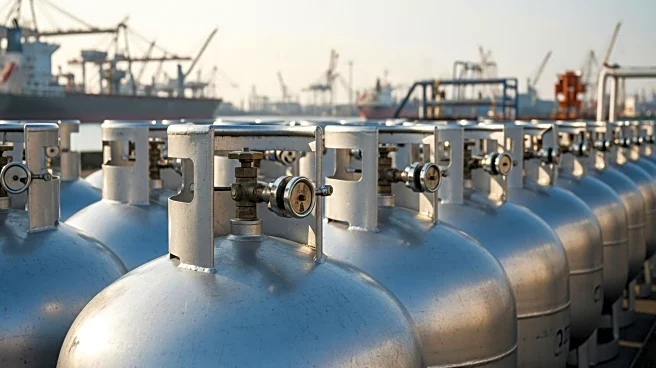What is the story about?
What's Happening?
Ports across the United States are increasingly turning to propane as a reliable and cost-effective energy solution to enhance operational efficiency and resilience. As traditional reliance on government grants and the unstable electric grid proves insufficient, propane emerges as a viable alternative. An upcoming webinar titled 'Power & Performance at the Port: How Propane Moves Maritime Operations Forward' will feature industry experts discussing propane's transformative role in port operations. The session will highlight propane's ability to reduce equipment, infrastructure, and maintenance expenses, deliver reliable energy under various conditions, and maintain operations even during grid failures. Notably, ports like the West Basin Container Terminal at the Port of Los Angeles have reported fuel cost savings of approximately 25% after transitioning from diesel to propane, allowing them to reinvest millions into their operations.
Why It's Important?
The shift to propane is significant for U.S. ports facing economic pressures from fluctuating trade volumes and tariffs. Propane offers a stable domestic supply, shielding ports from volatile global oil markets and price spikes. Its lower infrastructure costs and reduced maintenance requirements make it an attractive option for port terminal operators aiming to improve performance and sustainability. As ports seek energy diversification and solutions to enhance operational efficiency, propane provides a dependable energy source that can help them navigate uncertain economic conditions. This transition not only supports cost control but also contributes to environmental sustainability by reducing reliance on diesel.
What's Next?
The upcoming webinar on October 16, 2025, will provide port operators and industry stakeholders with insights into propane's benefits and real-world success stories. Participants will learn about actionable strategies to implement propane in their operations, potentially leading to broader adoption across the maritime industry. As ports continue to explore energy diversification, propane's role may expand, influencing future energy policies and investments in port infrastructure. Stakeholders will likely monitor the outcomes of this transition to assess its long-term viability and impact on trade efficiency.
Beyond the Headlines
The adoption of propane in U.S. ports may have broader implications for energy policy and environmental sustainability. As ports demonstrate the economic and operational advantages of propane, there could be increased advocacy for its use in other sectors, potentially influencing national energy strategies. Additionally, the shift may prompt discussions on the environmental benefits of reducing diesel usage, contributing to cleaner air and reduced emissions in port areas. This transition could serve as a model for other industries seeking sustainable energy solutions.

















